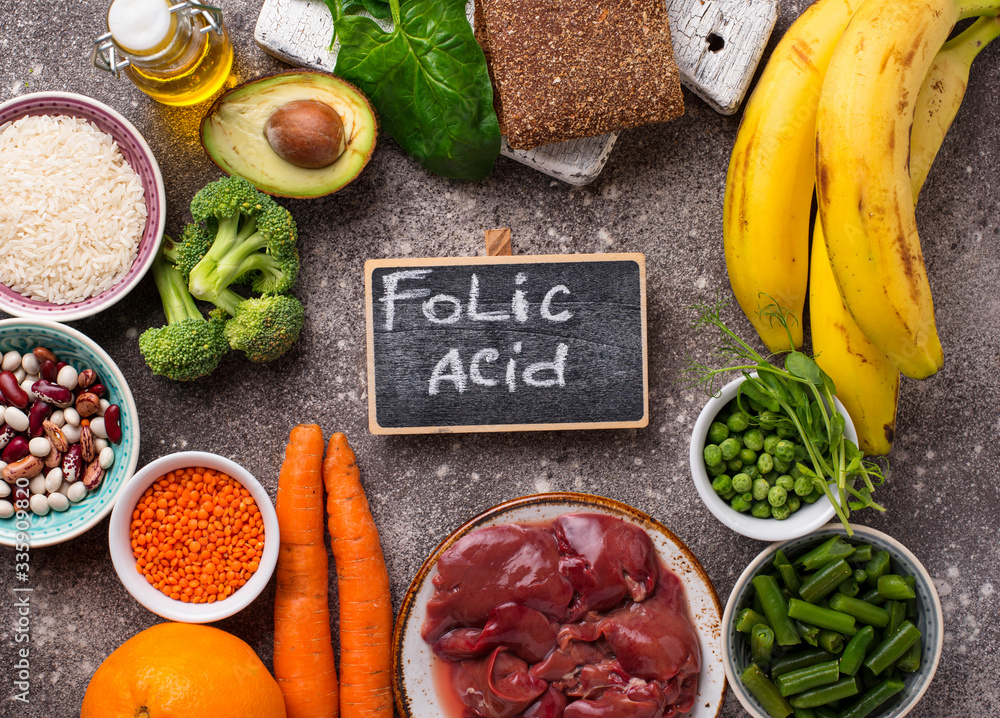What is folic Acid?
Folic acid is a synthetic form of vitamin B9, also known as folate. It is an essential nutrient that plays a vital role in cell division, DNA synthesis, and the production of red blood cells. Folic acid is particularly important during pregnancy as it helps in the proper development of the fetus, especially the formation of the neural tube, which develops into the baby’s brain and spinal cord. Adequate levels of folic acid are also important for overall health, supporting new cell production and immune function. While it can be obtained from foods like leafy greens and legumes, folic acid supplementation is often recommended during pregnancy to ensure sufficient intake. Fortification programs in some countries add folic acid to staple foods. It’s important to consult a healthcare professional for appropriate folic acid supplementation guidance.

When Should I Start Taking Folic Acid?
There are several compelling reasons why you should consider starting to take folic acid. Here are some examples:
- Firstly, folic acid is crucial for the early stages of pregnancy, It plays a vital role in the development of the baby’s neural tube.
- Moreover, taking folic acid can help prevent neural tube defects, such as spina bifida. folic acid supports the production of red blood cells, which are essential during pregnancy. Additionally, folic acid contributes to the proper development of the baby’s brain and spinal cord.
- Importantly, starting folic acid supplementation before conception is recommended.
- Folic acid is particularly important during the first trimester of pregnancy. Furthermore, adequate folic acid intake has been linked to a reduced risk of birth defects, including cleft lip and palate.
Lastly, healthcare professionals often prescribe folic acid supplements to ensure that pregnant women meet their nutritional needs.
The recommended dosage of folic acid during pregnancy can vary depending on factors such as individual health and medical history. However, in general, the Centers for Disease Control and Prevention (CDC) and other healthcare organizations provide guidelines for folic acid intake during pregnancy. Here are some general recommendations:
How Much Folic Acid Should I Take in Pregnancy?
- Most healthcare professionals recommend that women who are planning to conceive or are in the early stages of pregnancy take a daily supplement of 400 to 800 micrograms (mcg) of folic acid.
- For women who have a higher risk of neural tube defects or who have previously had a pregnancy affected by such defects, a higher dosage of folic acid (up to 4,000 mcg) may be recommended. This is typically done under the guidance of a healthcare provider.
- It is important to note that folic acid can also be obtained through a balanced diet. Including folate-rich foods in your meals, such as leafy green vegetables, citrus fruits, legumes, and fortified cereals, can help contribute to your overall folic acid intake.
- While you’re trying to conceive: 400 mcg
- For the first three months of pregnancy: 400 mcg
- For months four to nine of pregnancy: 600 mcg
- While breastfeeding: 500 mcg
- It’s essential to consult with your healthcare provider or prenatal care provider to determine the appropriate dosage of folic acid for your specific circumstances. They will take into account your medical history, any pre-existing conditions, and your individual needs to provide personalized guidance on folic acid supplementation during pregnancy.
Recommended intake:
The body absorbs folic acid from supplements and fortified foods better than folate from naturally occurring foods.
| Age: | Recommended amount: |
| 0–6 months | 65 mcg dietary folate equivalent (DFE) |
| 7–12 months | 80 mcg DFE |
| 1–3 years. | 150 mcg DFE. |
| 4–8 years. | 200 mcg DFE. |
| 9–13 years. | 300 mcg DFE. |
| 14–18 years. | 400 mcg DFE. |
| 19+ years. | 400 mcg DFE. |
| During pregnancy. | 400–800 mcg DFE. |
| During lactation. | 500 mcg DFE.. |
It is important to note that folic acid can interact with certain medications and may not be safe for everyone to take. A person should speak to their doctor before increasing their folic acid or folate intake.
Sources of folic acid in food?
You can increase your folic acid intake with the following foods:
- Breakfast cereals fortified with 400 mcg, or 100% of the DV 3/4 cup
- Beef liver, cooked and braised, 3 oz., 215 mcg
- 179 mcg: cooked, boiling, ripe lentil seeds. 1/2 cup
- 115 mcg: frozen, cooked, and boiled spinach 1/2 cup
- 110 mcg: cooked, enhanced egg noodles 1/2 cup
- Breakfast cereals fortified with 25% of the DV at 100 mcg 3/4 cup
What Are the Benefits of Folic Acid?
- Great Supports fetal development: Adequate folic acid intake is crucial during pregnancy as it plays a vital role in the proper development of the baby. It helps in the formation of the neural tube, which later develops into the baby’s brain and spinal cord. Sufficient folic acid levels reduce the risk of neural tube defects such as spina bifida.
- Reduces the risk of certain birth defects: In addition to neural tube defects, folic acid intake has been associated with a lower risk of other birth defects, including cleft lip and palate, heart defects, and certain limb malformations.
- Supports red blood cell production: Folic acid is involved in the production of red blood cells. Sufficient levels of folic acid help prevent anemia, a condition characterized by low red blood cell count, which can lead to fatigue, weakness, and other health issues.
- Promotes cardiovascular health: Folic acid helps in reducing the levels of homocysteine, an amino acid that, when elevated, is associated with an increased risk of cardiovascular diseases, including heart disease and stroke. Adequate folic acid intake can help maintain optimal homocysteine levels and support heart health.
- Supports mental health: Folic acid plays a role in the synthesis of neurotransmitters like serotonin, dopamine, and norepinephrine, which are essential for mood regulation. Adequate folic acid levels may help support mental health and reduce the risk of depression and other mood disorders.
- Supports cognitive function: Folic acid is important for brain health and cognitive function. Sufficient intake may help maintain cognitive abilities and support healthy aging.
- Supports cell growth and repair: Folic acid is involved in DNA synthesis and cell division processes. It supports the growth and repair of cells throughout the body, contributing to overall tissue health and maintenance.

Folate deficiency results in:
Folate deficiency occurs when there is not enough folate present in the body. This can lead to a type of anemia called megaloblastic anemia.
During pregnancy, folate deficiency increases the risk of congenital irregularities.
Some symptoms of folate deficiency
- fatigue
- trouble concentrating
- headache
- irritability
- heart palpitations
- sores on the tongue and inside the mouth
- a change in color of the skin, hair, or fingernails
- irritability, headache, heart palpitations, and shortness of breath
Some groups at increased risk of folate deficiency include:
- people with alcohol use disorder
- pregnant people
- people of childbearing age
- people with conditions that affect nutrient absorption, including irritable bowel disorder (IBD) and celiac disease
- people with MTHFR polymorphism, which is a genetic condition that impairs the ability to convert folate to its active form and leads to elevated levels of an amino acid called homocysteine in the blood.

